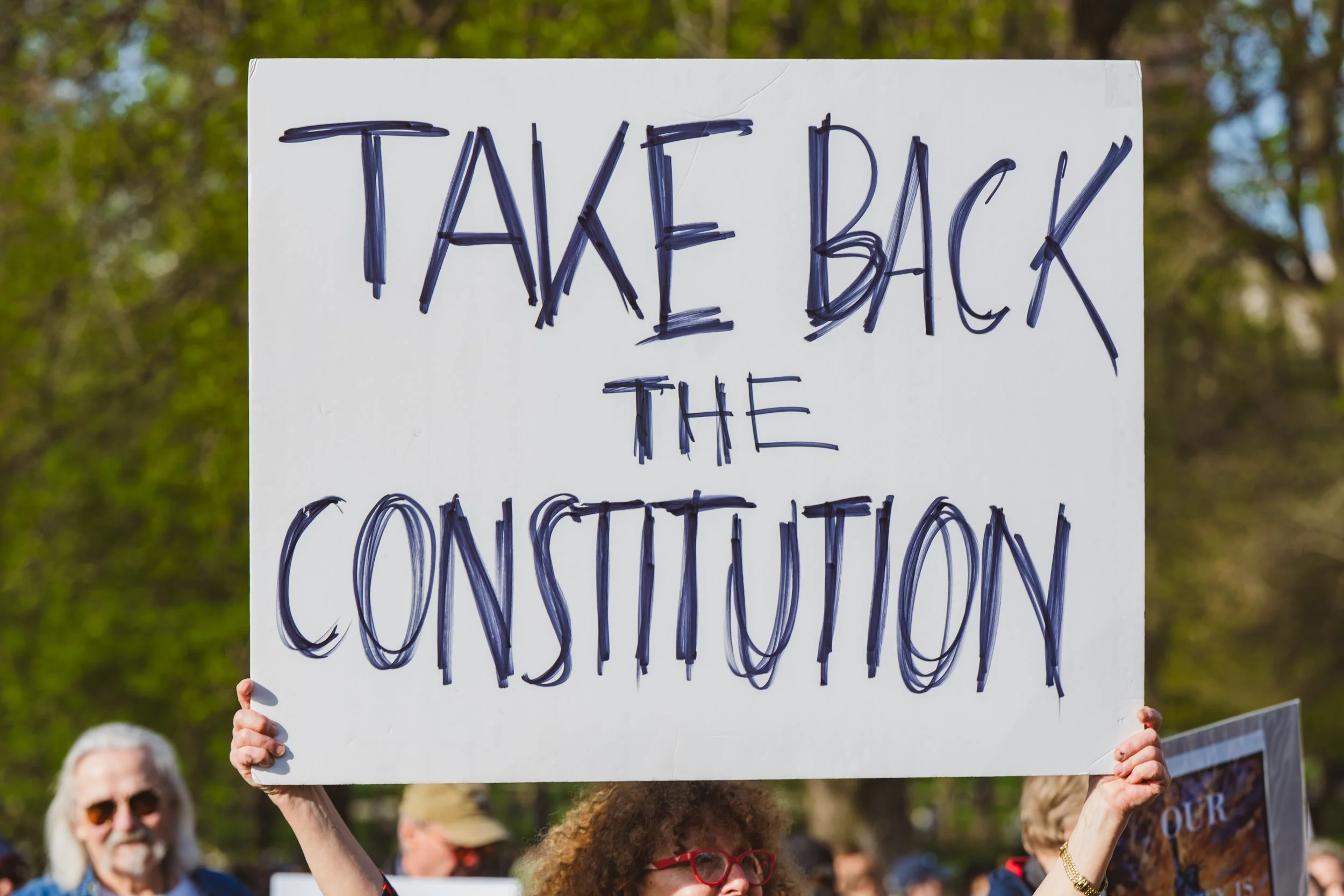Standing Armies Are a Threat to the Constitution
Photo via Mass 50501 Volunteer
In June, soldiers were deployed in Los Angeles against the California Governor’s wishes. Although that deployment was ruled unlawful, troops have since been used in D.C. on the pretext of fighting crime, and more are now headed towards Memphis. Other cities may soon be next.
It is tragically ironic that these deployments are happening as we celebrate the 238th anniversary of the signing of the U.S. Constitution, which happened Wednesday, September 17th. This is because these actions recall a threat that the Constitution was designed to protect against: the presence of standing armies and the resulting encroachment on civil liberties.
It will come as no surprise that the framers of the Constitution were opposed to standing armies, considering they rose up against one during the Revolutionary War. Their opposition was so fierce that they included "[keeping] in Times of Peace, Standing Armies without the consent of our Legislatures" among the list of grievances in the Declaration of Independence. It is commendable that once the founding fathers started their own nation and gained control of their own armies, they continued this opposition to standing armies and built safeguards against their future use.
The Framers recognized several threats from standing armies, foremost being that conflict can arise when the troops are not of the people they are commissioned to serve. This conflict was evident in the months leading up to the Boston Massacre. There, the standing British army repeatedly clashed with the Americans, with locals accusing soldiers of harassment, theft, competing with them for labor, and encouraging slaves to rise against their masters. Over time, tensions got so high that when a mob surrounded a contingent of troops on March 5th, 1770, the outnumbered soldiers ultimately fired into the crowd, killing four.
Importantly, the Framers also noted that the risk of conflict is not exclusive to situations in which troops and civilians come from different backgrounds because cultural differences naturally emerge between these groups over the course of a deployment. As Sam Adams wrote in 1776, “Soldiers are apt to consider themselves as a Body distinct from the rest of the Citizens. They have their Arms always in their hands.” Compounding this danger is the fact that soldiers are compelled to obey their officers, with authority ultimately descending from their commander-in-chief. This means that when the executive authority is at odds with the desires of the people, violence becomes even more likely to erupt.
Recognizing these threats, the Framers emphasized local, civil control over militias, including the National Guard. Article I, Section 8 of the U.S. Constitution vested the people’s representatives in Congress with “governing” the militia during federal deployments, but reserved appointment and training of the troops to the States themselves. The dangers this was meant to prevent were named explicitly in the Massachusetts Constitution; Part 1, Art. XVII reads “...in time[s] of peace, armies are dangerous to liberty, they ought not to be maintained without the consent of the legislature; and the military power shall always be held in an exact subordination to the civil authority, and be governed by it.” Over the last century, official actions have mostly been consistent with these principles, with domestic deployment of the National Guard typically reserved for emergencies such as disaster relief at the request of state governors.
Trump is now openly violating these constitutional principles which generations of Americans have upheld. He has activated the National Guard over protests of local leaders, including the mayors of Los Angeles and Memphis. Additionally, by sending the Marines to LA, he put some soldiers with no direct connection to California into a conflict-ready environment, violating the idea that soldiers should be connected to their local community. Not only do these acts forsake the spirit of the Constitution, they are also unlikely to achieve any of the administration’s stated goals, with many experts predicting that these deployments will have no long-term effect on crime.
In summary, the anti-constitutional use of standing armies produces a great risk. Every day that soldiers are on the street in a role some Americans see as antagonistic, the risk of violence increases as fuel is added to a pile of discontent. Let us hope we will not see a spark lit.
Enjoyed this article? Get updates on the movement, volunteer opportunities, and more by clicking below.
